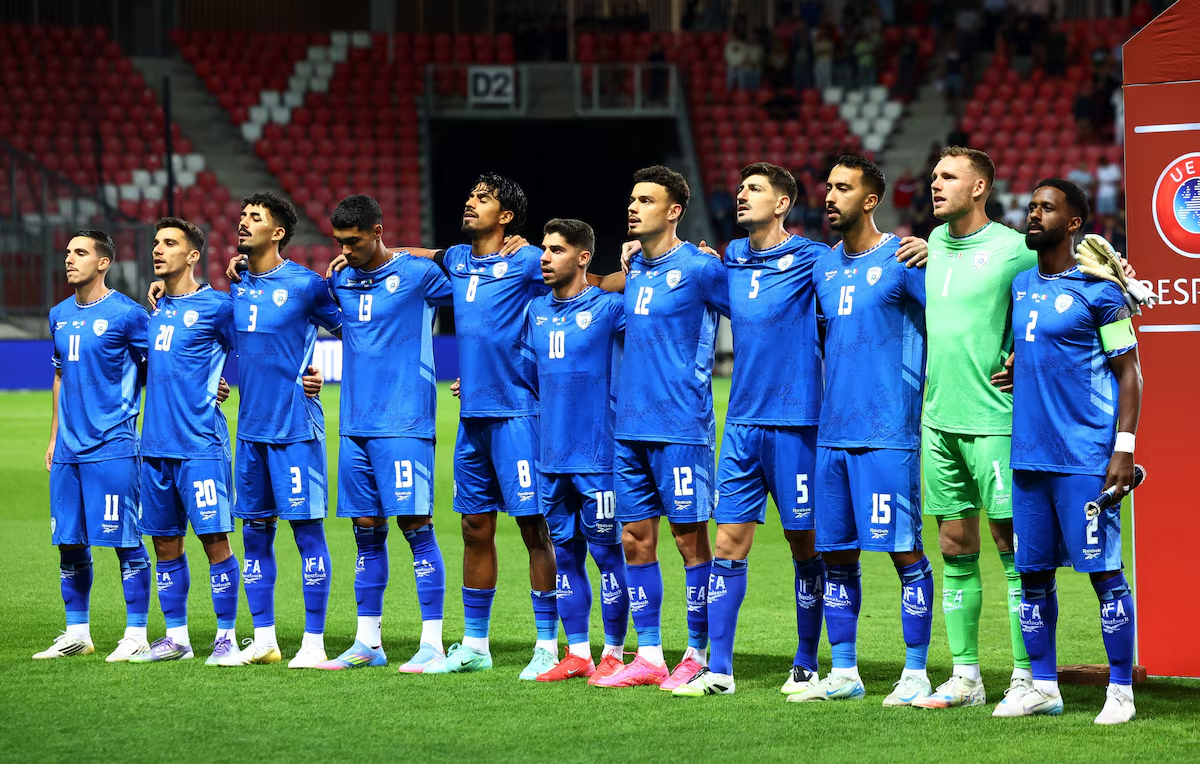Subtotal $0.00
Security concerns around Israel’s World Cup qualifiers
Rising risk assessment and security planning
In Europe, the Israel World Cup qualifiers security debate dominates discussions as authorities weigh safety ahead of two crucial fixtures. The focus is not only on football tactics but on protecting players, staff, and tens of thousands of fans. Security officials say the risk environment has many moving parts, from street protests near venues to potential actor threats that could disrupt operations. Organisers balance access and security, trying to maintain competitive integrity while avoiding public panic. The challenge is amplified by geopolitical tensions that rise around high-profile matches. In short, the topic is as much about safeguarding the event’s atmosphere as it is about the scoreline. The aim is to secure fair play without intimidation.
Reuters reported that Israeli security teams are working closely with host-country authorities to sharpen risk assessments and contingency plans. Reuters report indicates coordinated police deployment, crowd-management strategies, and rapid-response units ready to interdict disturbances. As match days approach, case-specific plans cover venue perimeters, transport routes, and hotel security. Organisers have begun rehearsing evacuation procedures and coordinating medical readiness. With the safety framework in place, fans should expect visible security presence, yet organisers insist normal stadium experiences will be preserved where possible. The Israel World Cup qualifiers security equation remains dynamic, driven by intelligence updates and community tensions, and will continue to shape how teams train and travel in the run-up to kick-off.
Matches in Norway and Italy
Logistics, venue security, and travel considerations
Norway and Italy present different security landscapes for the Israel World Cup qualifiers security planning. In Oslo, police and private security are expanding patrols around stadiums, with additional bag checks and traffic diversions designed to minimize crowding and risk. In Udine, Italian authorities focus on access control, perimeter checks, and coordination with international security teams to manage fan zones and media access. Organisers stress that while football remains the priority, the surrounding environment could influence attendance and atmosphere. Stakeholders emphasize smooth execution to preserve competitive integrity while addressing public safety concerns. The two venues highlight the complex balance between rapid response capabilities and preserving a welcoming matchday experience.
Travel arrangements for away supporters are being reviewed as part of risk mitigation. Some fans may face longer routes or stricter entry checks, and clubs are advising supporters to plan well in advance. Broadcast crews coordinate with local authorities to ensure reliable feeds, safe camera positions, and secure access during live shoots. The dual venues also raise questions about scheduling, with authorities weighing potential delays if security needs escalate. The broader context of Israel World Cup qualifiers security means that even routine operations require heightened vigilance and flexible contingency planning, ensuring the competition can proceed if incidents arise.
Udine mayor’s warning and security measures
Mayor’s alert and measures in Udine
Udine’s mayor has warned that the situation surrounding the match cannot be taken lightly. He stressed that safety for players, staff, officials, and fans must be central to all plans. Local authorities have signaled vigilance, with law enforcement prepared to expand presence and to coordinate with Israeli and regional security teams. The message is clear: deterrence, rapid response, and effective communication will underpin the matchday operation at Udine’s venues. While the focus remains on football, the city’s leadership recognizes that a tense security environment can undermine confidence and turnout. The aim is to ensure a secure, fair, and enjoyable experience for everyone involved.
Measures in Udine include enhanced perimeter fencing, expanded CCTV coverage, strict bag checks, and clearer crowd-flow management. Police and private security will work with event organisers to manage access to fan zones and media areas. Local authorities will also coordinate with Israeli security liaison officers to implement joint incident response protocols, emergency medical readiness, and contingency routes for evacuation. The Udine mayor’s warning underscores that the safety of players, staff, and supporters is non-negotiable and that proactive planning remains essential. Official channels, including the city’s site, circulate updates as decisions are refined. Udine official site provides background on security arrangements for visitors.
Impact on team preparation and attendance
Training, travel, and fan turnout
The evolving security situation is reshaping Israel’s team preparation for the World Cup qualifiers. Teams must adapt training camps, travel itineraries, and lodging plans to accommodate heightened surveillance and potential disruptions. Managers weigh the risks of late schedule changes and consider contingencies for practice venues near security-critical zones. In addition, squad readiness now includes coordination with security personnel to rehearse stadium entry, warm-ups, and post-match procedures under watchful eyes. The Israel World Cup qualifiers security framework has become an integral part of tactical planning, influencing player availability and readiness to meet opponents with maximum focus.
Attendance and fan turnout are also likely to feel the impact. The security climate can affect travel confidence, access to public transport, and the willingness of away fans to undertake long journeys. Organisers anticipate possible constraints on supporter numbers and will monitor entry patterns closely. Broadcasters contemplate adjustments to production schedules and in-venue experiences to reflect the realities of crowd management. While football action remains the primary draw, the surrounding security environment is a constant factor that teams and supporters must navigate in the days ahead. For fans seeking the latest safety updates, official sources, and reputable outlets, ensure you follow the ongoing guidance from authorities. FIFA safety guidelines and UEFA safety resources offer general best practices for major events.
Implications for European football security
Broader safety framework and policy implications
The Israel World Cup qualifiers security incidents reflect a broader trend in which geopolitical tensions increasingly intersect with sport. European leagues and federations are re-evaluating threat assessments, crowd-control protocols, and stadium design to bolster resilience. The dual-country matches serve as a case study in cross-border security collaboration, where police, security services, and event staff align on common standards. As organisers prepare for future high-profile fixtures, lessons from Norway and Udine feed into updated risk matrices, communications plans, and incident-response workflows. The aim is to maintain competitive integrity while reducing vulnerability to disruption and ensuring a safe spectator experience. Transition plans may involve tighter fan zones, enhanced communications channels, and more robust coordination with international partners. Israel World Cup qualifiers security considerations thus influence policy beyond this cycle of matches.
Policy implications include deeper cross-border cooperation, improved threat intelligence sharing, and standardized response protocols for mass gatherings. Sports bodies may adopt longer lead times for security planning, invest in crowd-management training, and implement more precise risk triggers for delays or venue changes. This evolving security environment could alter how European football schedules fixtures, broadcasts games, and manages on-site operations across multiple markets. While the focus remains on the ball, the experience highlights a future where security considerations are integral to strategic decisions, not afterthoughts. For more context on global security developments, readers can consult international security resources and official statements from governing bodies, such as FIFA and UEFA.
















